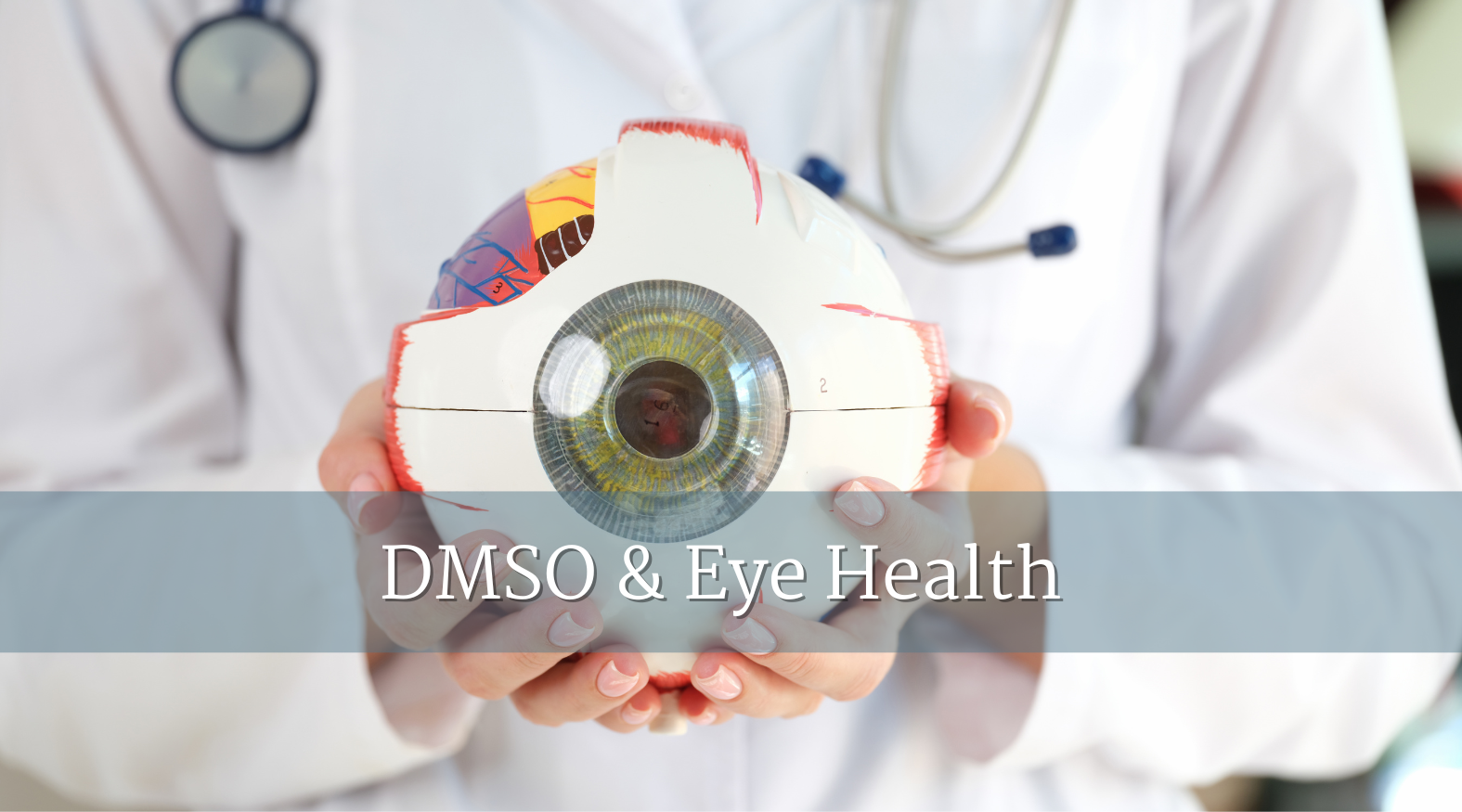
Dimethyl sulfoxide, better known as DMSO, is a naturally occurring compound derived from wood pulp. While it’s best known for its ability to reduce inflammation and carry other substances deep into tissues, some people have taken an interest in its potential for eye health. But with the eyes being one of the most delicate organs in the body, this is an area where curiosity must be balanced with safety.
In this article, we’ll explore what DMSO is, how it interacts with eye tissue, potential benefits, safety considerations in the UK, and why choosing a high-purity product is essential.
What is DMSO?
DMSO is a clear, odourless liquid with a unique ability to pass through skin and biological membranes. It’s been used in medical, veterinary, and industrial applications for decades, particularly for its anti-inflammatory and analgesic effects.
What sets DMSO apart is its carrier property — it can transport other molecules directly through the skin and into the bloodstream. This makes it powerful, but it also means safety and purity are critical.
How DMSO Works in the Eye
Penetration & Anti-inflammatory Action
DMSO can penetrate tissues rapidly, including the eye’s cornea and sclera. Its anti-inflammatory action may help reduce swelling and oxidative stress, which are factors in many eye conditions.
Potential Benefits in Eye Health
Some research and anecdotal reports suggest DMSO may:
-
Reduce oxidative damage in eye tissues
-
Support recovery from certain inflammatory conditions
-
Improve circulation in the tiny blood vessels of the eye
-
Relieve discomfort associated with chronic eye irritation
These effects have led to experimental interest in DMSO for conditions like cataracts, macular degeneration, and glaucoma — but it’s important to note that these uses are not officially approved in the UK.
Common Eye Conditions DMSO is Linked To
While human research is limited, some areas of investigation have included:
-
Cataracts: Early studies explored whether DMSO could dissolve lens opacities.
-
Glaucoma: Interest lies in its potential to reduce intraocular pressure by improving fluid drainage.
-
Macular Degeneration: The antioxidant properties of DMSO have led to experimental use for slowing tissue damage.
-
Chronic Eye Inflammation: Its anti-inflammatory action may provide relief in persistent irritation cases.
Legal & Safety Considerations in the UK
In the UK, DMSO is not approved as an eye medication for humans. This means:
-
It should not be used in or near the eyes without direct medical supervision.
-
Over-the-counter DMSO products are sold for topical use only, not for ophthalmic application.
-
Using unapproved substances in the eye carries legal and health risks.
The eye’s delicate structures can be permanently damaged by incorrect use. If you’re considering DMSO for eye health, speak to an ophthalmologist first.
Veterinary Notes: Beyond Human Use
In veterinary medicine, DMSO has been used for certain eye conditions in horses and other animals, often to reduce inflammation or carry medications into deeper tissues. This is done under strict veterinary control and with formulations suited to the animal’s needs.
Choosing High-Purity DMSO for Eye Safety
If DMSO is to be used anywhere near the face or delicate skin, purity is non-negotiable. Pharmaceutical-grade DMSO is filtered to remove impurities that could harm sensitive tissues.
When shopping for DMSO:
-
Look for labels stating pharmaceutical grade or 99.9% pure
-
Avoid industrial-grade products
-
Ensure you buy from a reputable supplier with transparent quality testing
Final Thoughts
DMSO’s potential in eye health is intriguing, but it’s also an area that requires extreme caution. While its ability to penetrate tissue and reduce inflammation makes it attractive for research, it’s not something to experiment with on your own.
If you decide to explore DMSO for eye health, always consult a qualified medical professional and choose the highest-purity product possible.
Frequently Asked Questions About DMSO and Eye Health
Q: Can I put DMSO directly into my eye?
A: No. DMSO is not approved for direct ophthalmic use in humans in the UK and can cause damage if used incorrectly.
Q: Has DMSO been studied for cataracts?
A: Yes, early research looked at its potential for dissolving lens opacities, but this is not an approved treatment.
Q: Is DMSO legal to use for eye conditions in the UK?
A: Only under medical supervision and with a prescription, as it’s not approved for over-the-counter ophthalmic use.
Q: Can DMSO help with glaucoma?
A: Some studies suggest it may reduce intraocular pressure, but this is still experimental.
Q: Is veterinary DMSO safe for humans?
A: No, veterinary formulations may contain additives unsuitable for human use.
Q: Can DMSO damage the eye?
A: Yes, improper use can cause irritation, corneal damage, or vision problems.
Q: What’s the safest way to use DMSO for eye health?
A: Only under professional medical guidance and never self-administered in the eye.
Q: Does DMSO work for macular degeneration?
A: There’s no approved treatment using DMSO for macular degeneration.
Q: Why is pharmaceutical grade important?
A: High purity ensures harmful contaminants are removed, reducing the risk of irritation or damage.
Q: Can animals have DMSO for eye problems?
A: Yes, but only under veterinary supervision with species-appropriate formulations.




 DMSO in Veterinary Care: Beyond Horses & Dogs
DMSO in Veterinary Care: Beyond Horses & Dogs
 DMSO and Wound Healing: Science, Benefits, and Safe Use
DMSO and Wound Healing: Science, Benefits, and Safe Use














